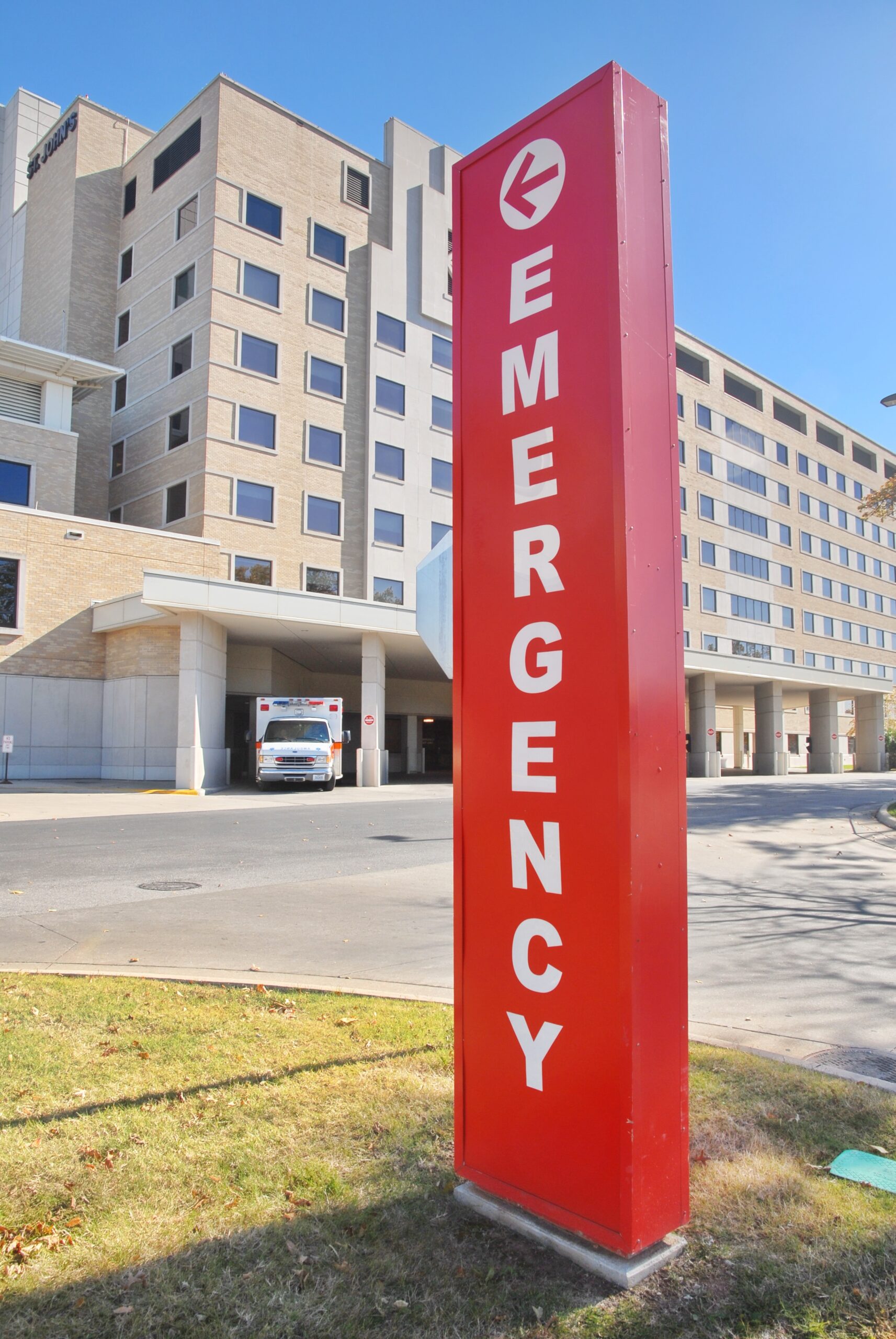Have you ever wondered what laws are in place to protect us during hurricanes? In this article, you will discover the crucial hurricane laws that are designed to keep us safe and minimize damage. From mandatory evacuations to price gouging regulations, these laws play a vital role in ensuring our well-being during these powerful storms. So, let’s explore the world of hurricane laws and understand how they strive to protect and support us in times of crisis. Get ready to gain some insightful knowledge on the important regulations that come into play when a hurricane strikes.
Hurricane Preparedness Laws
Building Codes and Regulations
When it comes to hurricane preparedness, building codes and regulations play a crucial role in ensuring the safety and resilience of structures in hurricane-prone areas. These laws outline the minimum standards for construction, including materials, design, and structural integrity, to withstand high winds, storm surges, and other destructive forces associated with hurricanes. By adhering to these codes, builders and homeowners can significantly reduce the risk of damage and protect lives during a hurricane.
Evacuation Plans
In order to safeguard the lives of residents in hurricane-affected areas, evacuation plans are put in place. These plans, developed by local and state authorities, outline the procedures and routes for orderly evacuation when a hurricane is approaching. They take into consideration factors like population density, proximity to the coast, and vulnerable populations, such as the elderly or individuals with disabilities, ensuring that everyone has a safe and efficient means of leaving the area. Evacuation plans are regularly updated and communicated through various channels to ensure maximum preparedness.
Emergency Response
Hurricane preparedness laws also entail regulations for emergency response. These laws establish the framework for coordinating and mobilizing emergency personnel, such as firefighters, law enforcement, and medical teams, before, during, and after a hurricane. They outline protocols for communication, resource allocation, and swift response to ensure timely and effective assistance to affected communities. By having well-defined emergency response laws in place, the government can efficiently manage the aftermath of a hurricane and provide necessary support to those in need.
Insurance Regulations
In the event of a hurricane, insurance plays a critical role in helping individuals and businesses recover. Insurance regulations establish the requirements and standards for insurance coverage related to hurricanes and other natural disasters. These laws ensure that insurance companies offer policies that provide adequate protection and fair compensation for damages caused by hurricanes. They also regulate the claims process and prevent unfair practices, ensuring that policyholders are supported and the insurance industry operates in a transparent and accountable manner.
Hurricane Warning and Communication Laws
National Hurricane Center
The National Hurricane Center (NHC) is responsible for issuing hurricane warnings and forecasts, providing critical information for individuals, communities, and emergency management agencies. Hurricane warning and communication laws support the NHC’s operations by outlining protocols for disseminating accurate and timely information about hurricanes. These laws address the coordination between the NHC, government agencies, and the media to ensure that citizens receive reliable updates regarding the path, intensity, and potential impacts of hurricanes, allowing them to make informed decisions and take necessary precautions.
Emergency Alert Systems
Emergency alert systems are a vital component of hurricane warning and communication laws. These systems, such as the Emergency Alert System (EAS) and Wireless Emergency Alerts (WEA), enable authorities to quickly communicate urgent messages to the public during emergencies, including hurricanes. By leveraging various communication channels, such as radio, television, cell phones, and sirens, these systems ensure that individuals receive immediate notifications about evacuation orders, shelter locations, and other life-saving information. These laws require the maintenance and testing of these alert systems to guarantee their reliability and effectiveness.
Media Communication Guidelines
During a hurricane, accurate and timely information from the media is essential for public awareness and preparedness. Media communication guidelines established by hurricane warning laws ensure that journalists and news organizations follow best practices and ethical standards when reporting on hurricanes. These guidelines encourage responsible reporting, avoidance of sensationalism, and the avoidance of dissemination of unverified information. By adhering to these guidelines, the media can play a crucial role in disseminating vital information and keeping the public informed during hurricane events.
Hurricane Relief and Recovery Laws
Federal Aid Programs
In the aftermath of a hurricane, federal aid programs are instrumental in providing financial assistance to affected individuals, businesses, and communities. These programs, established by hurricane relief and recovery laws, allocate funds for immediate relief efforts, infrastructure repairs, and long-term recovery projects. They aim to support individuals and businesses in rebuilding their lives, restore critical services, and strengthen the resilience of communities impacted by hurricanes. These laws also outline the eligibility criteria, application processes, and accountability measures associated with federal aid programs.
Disaster Declarations
Disaster declarations are formal proclamations issued by the government that recognize the severity and impact of a hurricane event. These declarations activate federal resources and assistance to supplement state and local recovery efforts. Hurricane relief and recovery laws specify the criteria and procedures for declaring a disaster, allowing affected areas to receive the necessary support and aid. By facilitating the timely flow of resources and coordination between different levels of government, these laws expedite the recovery process and ensure equitable distribution of assistance.
FEMA Regulations
The Federal Emergency Management Agency (FEMA) plays a central role in hurricane relief and recovery efforts. FEMA regulations, established by hurricane relief laws, outline the agency’s responsibilities and procedures for providing assistance and coordinating disaster response. These regulations cover various aspects, including individual assistance, public assistance, hazard mitigation, and the National Flood Insurance Program. By implementing these regulations, FEMA ensures a coordinated and effective response to hurricanes, assisting in the recovery and rebuilding of affected communities.
Temporary Housing Assistance
Temporary housing assistance is a crucial component of hurricane relief and recovery laws. These laws establish provisions for providing temporary shelter or financial aid to individuals and families displaced by hurricanes. Temporary housing solutions can include emergency shelters, rental assistance, or financial assistance for home repairs. By providing immediate support and addressing the housing needs of affected individuals, these laws aim to expedite the recovery process and ensure the well-being and stability of impacted communities.
Environmental Protection Laws
Coastal and Stormwater Management
Coastal and stormwater management laws are key to protecting coastal areas from the impacts of hurricanes. These laws establish guidelines for managing development near coastlines, including setback requirements, erosion control measures, and restrictions on certain activities to preserve natural barriers and reduce vulnerability to storm surge. Additionally, they address stormwater management to minimize flooding and protect water quality during hurricanes. By incorporating these regulations, authorities can safeguard ecosystems, infrastructure, and human lives in coastal regions.
Wetlands and Floodplains Protection
Wetlands and floodplains play a critical role in mitigating the impacts of hurricanes. Wetland and floodplain protection laws ensure the preservation and restoration of these natural features, which act as buffers against storm surge and absorb excess rainfall. These laws restrict certain activities within wetlands and floodplains to maintain their ecological functions and reduce vulnerability to flooding. By maintaining healthy wetland and floodplain systems, these laws contribute to the overall resilience of coastal and inland areas against the destructive forces of hurricanes.
Mitigation and Resiliency Mandates
Mitigation and resiliency mandates are a proactive approach to minimizing the potential impact of hurricanes. These laws require that new infrastructure projects, building developments, and renovations incorporate measures to enhance their resilience against hurricanes. This can include the use of resilient materials, elevation requirements, stormwater management systems, and other design considerations that mitigate wind damage, flooding, and other hazards associated with hurricanes. By enforcing these mandates, communities can reduce the long-term costs and impacts of hurricanes and build a more resilient future.
Infrastructure Laws
Utility and Telecommunication Resilience
During hurricanes, essential services such as electricity and communication networks are vulnerable to disruption. Infrastructure laws establish requirements for utility and telecommunication companies to enhance the resilience of their systems against hurricane impacts. These laws may include measures such as reinforced infrastructure, underground installations, backup power systems, and communication redundancy to ensure reliable services before, during, and after a hurricane. By complying with these laws, utility and telecommunication companies contribute to the overall resilience and recovery of affected communities.

Roads and Bridges Design Standards
Robust roads and bridges are crucial for effective evacuation, emergency response, and post-hurricane recovery efforts. Infrastructure laws mandate the incorporation of hurricane-resilient design standards in road and bridge construction and retrofitting projects. These standards may include measures such as elevated roadways, reinforced structures, and drainage systems that can withstand the forces of hurricanes. By adhering to these design standards, transportation agencies can ensure safer and more reliable transportation options during hurricane events, facilitating timely evacuation and resource mobilization.
Climate Change and Adaptation Laws
Green Building Codes
Green building codes aim to mitigate the environmental impact of buildings and promote sustainable and resilient practices. In the context of hurricanes, these codes address energy efficiency, materials selection, and design considerations that enhance buildings’ ability to withstand hurricanes. They may include requirements for impact-resistant windows, secure roofing systems, and efficient insulation. By incorporating such codes, communities can reduce the vulnerability of structures to hurricanes, lower energy consumption, and contribute to environmental sustainability.
Renewable Energy Mandates
Renewable energy mandates encourage the adoption of clean and sustainable energy sources, reducing reliance on fossil fuels and promoting energy resilience during hurricanes. These mandates require utilities and energy providers to increase their use of renewable energy, such as solar or wind power. By diversifying energy sources and incorporating renewable technologies, communities can ensure a more reliable energy supply during and after hurricanes, reducing disruptions and promoting a greener and more sustainable future.
Climate Resilience Funding
Climate resilience funding laws allocate resources to support adaptation and mitigation efforts in the face of climate change and hurricanes. These laws may provide funding for projects that enhance infrastructure resilience, protect vulnerable populations, and promote sustainable practices. By investing in climate resilience, communities can improve their ability to withstand the impacts of hurricanes and other climate-related events, reducing damages, and saving lives and resources in the long run.
Volunteer and Nonprofit Organizations
Safe Harbor Laws
Safe harbor laws protect volunteer organizations and individuals providing assistance during hurricanes from liability. These laws incentivize volunteers to participate in relief efforts by reducing the risk of legal action in case of accidental injury or damage while performing their duties. By enacting safe harbor laws, governments encourage active participation from volunteers and nonprofit organizations, ensuring a more robust and coordinated response to hurricanes.
Red Cross and Other Support Services
Nonprofit organizations, such as the Red Cross, play a vital role in providing essential services and support during and after hurricanes. These organizations, guided by hurricane laws and regulations, offer emergency shelters, food, medical support, and other critical services to residents in affected areas. By collaborating with government agencies and other stakeholders, nonprofit organizations contribute to the overall recovery and well-being of communities impacted by hurricanes.
Emergency Powers and Declarations
Governor’s Authority
During hurricane events, the governor’s authority is expanded through emergency powers granted by legislation. These emergency powers enable the governor to take swift and decisive action to protect public safety, coordinate resources, and respond to a hurricane’s impact. The governor may issue evacuation orders, activate the National Guard, facilitate the delivery of essential supplies, and declare a state of emergency. By harnessing these emergency powers, the governor can effectively lead the response efforts and safeguard the welfare of residents during hurricanes.
State of Emergency Provisions
State of emergency provisions outline the legal framework for declaring a state of emergency during a hurricane. These provisions empower the governor to mobilize resources, suspend certain laws and regulations, and request federal assistance. They also establish protocols for activating emergency management agencies, coordinating response efforts, and ensuring the efficient allocation of resources. By enacting state of emergency provisions, states can streamline their response to hurricanes and expedite aid to affected communities.
Government Accountability and Oversight
Post-Disaster Audits
Post-disaster audits are an essential aspect of ensuring transparency and accountability in the use of resources during hurricane recovery. These audits, conducted by independent entities, assess the effectiveness of relief and recovery efforts, identify areas of improvement, and ensure compliance with laws and regulations. By conducting thorough audits, governments can enhance their disaster management strategies, mitigate future risks, and provide reassurance to the public that resources are being used efficiently and responsibly.
Legislative Committees
Legislative committees dedicated to hurricane preparedness and recovery oversight play a vital role in ensuring effective governance and policy implementation. These committees review laws, regulations, and operational plans related to hurricanes, providing oversight and making recommendations for improvements. They monitor the government’s response to hurricanes, evaluate the allocation of resources, and act as a bridge between the government and the public. By actively engaging in oversight activities, legislative committees strengthen accountability and promote continuous improvement in hurricane preparedness and recovery.
Inspectors General
Inspectors general serve as independent watchdogs responsible for investigating and reporting on government activities related to hurricane preparedness and recovery. These entities ensure compliance with laws and regulations, prevent fraud, waste, and abuse, and provide objective assessments of government programs and initiatives. Inspectors general play a crucial role in maintaining integrity and accountability within government agencies involved in hurricane response and recovery efforts. Through their work, they enhance transparency and contribute to the overall effectiveness of hurricane-related laws and policies.
Awareness and Education Campaigns
School Curriculum Requirements
Awareness and education campaigns start at a young age through school curriculum requirements. These requirements mandate the incorporation of hurricane preparedness and safety measures into a comprehensive educational program. Students learn about the science of hurricanes, their potential impacts, and the importance of preparedness and evacuation. By integrating hurricane-related education into the curriculum, schools ensure that the next generation is equipped with the knowledge and skills to protect themselves and contribute to community resilience.
Public Outreach Initiatives
Public outreach initiatives aim to raise awareness and educate communities about hurricane preparedness, response, and recovery. Government agencies, nonprofit organizations, and community groups collaborate to deliver educational materials, host workshops, and engage with the public through various channels. Through public outreach initiatives, individuals and communities are provided with the information and resources they need to understand the risks associated with hurricanes, make informed decisions, and take necessary actions to protect themselves and their communities.
In conclusion, hurricane laws encompass a broad range of regulations and measures aimed at enhancing preparedness, response, recovery, and resilience in the face of hurricanes. These laws ensure the construction of hurricane-resilient buildings, the development of robust evacuation plans, the effective dissemination of warnings and communication, the provision of financial assistance, the protection of the environment, the implementation of resilient infrastructure, the promotion of climate change adaptation, the support of volunteer organizations, the effective use of emergency powers, the accountability of government actions, and the promotion of awareness and education among the public. By adhering to and continuously improving these laws, communities can better protect themselves, minimize damages, and recover quickly from the impacts of hurricanes.








